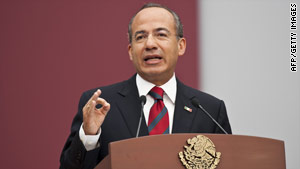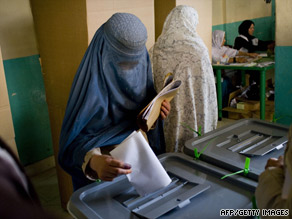By Erica Laster
Impunity Watch Reporter, North America
MEXICO CITY, Mexico – Amid criticism from human rights groups and pressure from the International Community, Mexican President Felipe Calderon recently sent a proposal to the country’s Senate requesting a change in jurisdiction of civilian courts which would require that military troops be subject to prosecution in civilian courts for cases involving rape, torture and forced disappearances.

Rights groups argue that the proposal is not sufficient to combat human rights abuses prevalent in the country. The proposal seeks to not only address abuses, but the lack of transparency in military tribunal proceedings.
An April 2009 report by the Human Rights Watch organization entitled “Uniform Impunity: Mexico’s Misuse of Military Justice to Prosecute Abuses in Counternarcotics and Public Security Operations,” claimed that “Not one of the military investigations into these crimes has led to a conviction for even a single soldier on human rights violations,” further noting that “the only civilian investigation into any of these cases led to the conviction of four soldiers.”
Calderon’s proposed measure would make military officials liable for convictions resulting from prosecutions of alleged rape, torture and forced disappearances in civilian court. With at least 45,000 troops deployed to combat drug trafficking and the growing violence, International Human Rights Groups have expressed concern over Mexico’s failure to prosecute abuses and rights violations alleged by families of innocent bystanders killed during shootouts in the drug war.
In December of 2009, Amnesty International outlined military abuse cases, citing one case in which military officials detained 25 Tijuana police officers suspected of corruption. The military troops allegedly placed the officer’s feet in water, applying shocks of electricity to their bodies and genitals.
Other civilians such as those in Ciudad Juarez have also complained that they have been the victims of warrantless searches in which troops dispatched to combat the drug trade steal goods and commit extrajudicial killings. Others indicate that the presence of military troops is comforting given the lack of public confidence in police as corruption is found throughout their forces. Over 29,000 people have lost their lives in drug-related violence since President Calderon took office in December of 2006.
For More Information Please Visit:
LA Times – Mexico Seeks to Require Civilian Trials for Troops 19 October 2010
CNN – Mexican President wants Civilian Trials for Some Military Cases – 19 October 2010
CBS News – Rights Groups Rap Mexico Plan on Military Trials – 20 October 2010

